A Topic of Care: Caregivers
especiales
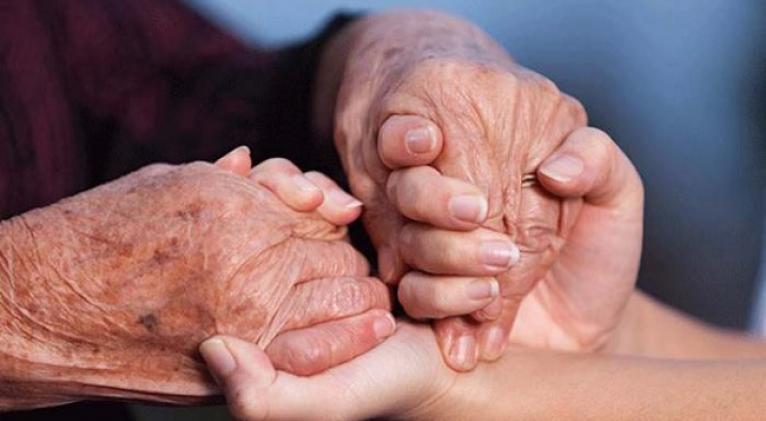
«But how am I going to fix my hair if sometimes I don't even have time to bathe?! This is no life, my friend ».
This is how Zunilda H., a 57-year-old woman from Havana who has been taking care of her elderly mother with dementia and bedridden for about 50 months, commented almost on the verge of tears.
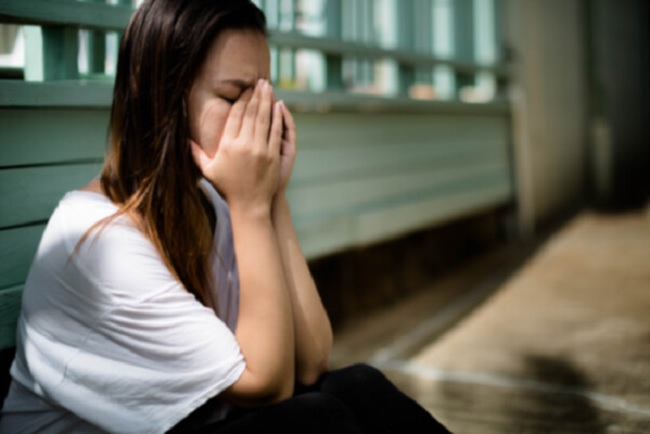
More than once CubaSí has addressed the issue <https://cubasi.cu/es/noticia/para-cuidar-las-cuidadoras> of those who dedicate themselves, as their main mission in life, to caring for another person in need, but the subject will always demand a new approach because there will always be people in such a delicate situation.
"Family coexistence in equity" is the motto of the tenth edition of the Conference "Maternity and Paternity. Equal in rights and responsibilities”, which is held in Cuba from February 14th - March 8th. And that motto more than justifies approaching this issue, surrounded by so many inequities.

This time, the considerations of specialist in Community Corrective Processes (ProCC for its acronym in Spanish) and member of the international teaching team of the Marie Langher Center, Ayelén Losada Cucco, invited by Cenesex to give the master lecture Thinking the way of thinking about care https://www.youtube.com/watch?v=tgygyZK9EDQ .
Caring is not necessarily suffering
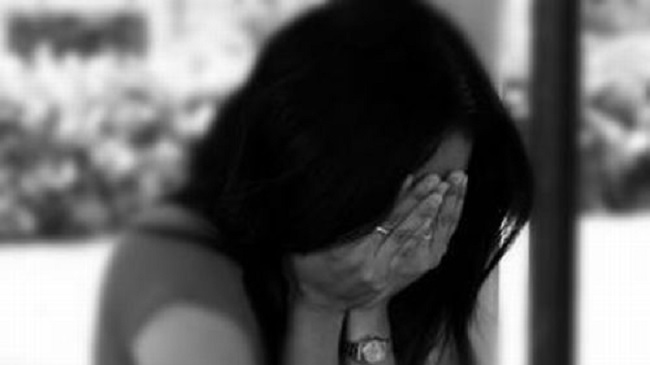
For centuries, the collective imagination continues to associate the idea of caring for disabled people with sacrifice and self-sacrifice, with unconditional loving dedication, which makes invisible any need of the caregiver, usually a woman.
Such "invisibility" ensures that this work -because it is, although it usually does not receive remuneration in most countries- remains relegated only to the private environment of the home.
Therefore, societies that promote individualism do not feel involved in the issue, and whoever takes care of them keeps repeating to themselves "this is what I got and I have to keep going."
In Cuba, the Family Code identifies for the first time care as a citizen's right and duty https://www.granma.cu/codigo-de-las-familias/2022-02-18/sostener-to-who-takes-care-of-a-social-responsibility-02-18-2022-23-02-44, which implies recognition of this work by law as well as guarantees for it, while promoting conciliation of the rights of caregivers and those who are cared for.
Even when the social and legal environment, as is the Cuban case, propose to get involved in this issue of care, and thus the feeling of loneliness or helplessness felt by the caregiver may be less, in any case it’s an exhausting job, but this doesn’t necessarily equate to suffering and nullifying the individuality of the person offering care.
We must question the ways of caring because, if we don't, we reproduce unhealthy relationships that contribute more to dependency than to the autonomy of both parties, this is what specialist Losada Cucco recommends.
The "guilt" of the caregiver
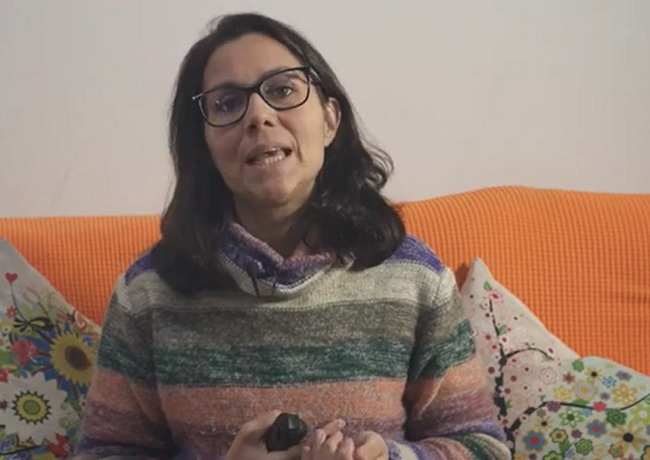
When relatives, friends and neighbors talk about Zunilda, the Cuban woman with whom this text begins, they do so with a mixture of admiration and compassion. Dedication, love, commitment, selflessness, perseverance, patience... are words that always accompany those comments.
And Zunilda feels recognized with that in a way, but it’s not enough for her. Of course is not enough because what few know is that behind her delicacy when holding her mother and crouching behind that smile that she forces on her lips there are many other feelings that for her are unspeakable.
But with this reporter, who is also her friend, she did share them:
«Please, don't tell anyone, may God forgive me, but there are times when something rises within me, anger, impotence... I wonder why this happened to me. I’ve lost so many things to take care of my mom that you cannot imagine. Well, you know that I even lost my marriage. And I swear to you that sometimes I feel like leaving everything and losing myself, but what I do is start crying and then I carry on».
The feelings of this woman, although they scare her, are not hers alone. Experts in the matter emphasize that it’s something common in caregivers, hit by stress, depression, as well as physical conditions such as back pain or headaches.
Although it’s normalized at a social level that these conditions reduce the quality of life of caregivers, it should not necessarily be so and to achieve this change, in the first place it’s necessary to understand this as a social problem instead of an individual one because many are affected and not just a handful of Zunildas.
Losada Cucco calls anger, frustration and those other negative emotions that sometimes accompany the work of caring "the unnameable feelings". She catalogs them in such a way because, the person who experiences them and who at the same time is flooded with fear for feeling this way, they think that, if they shared them publicly, they would be the object of rejection and criticism.
It’s then those supposedly unspeakable feelings that lead the caregiver to the unhealthy vicious circle of guilt, which the speaker invited by Cenesex clearly explained:
«I care in a selfless and committed way, but I get tired and fed up, I get upset and explode; maybe I yell or say a bad word, and then I feel guilty. As the cultural heritage tells me that I should not act like this, and that all guilt deserves punishment, then I punish myself by depriving myself even more of satisfying my needs or taking double care of the person, even though they really don’t require it.
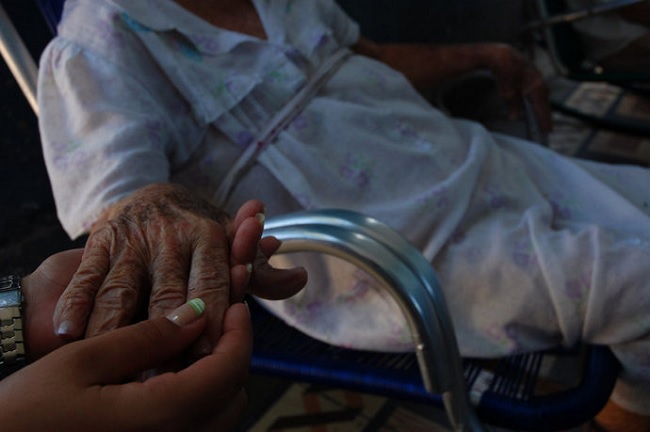
«It’s so that because of these self-punishments, I get twice as tired, I feel twice as fed up, twice as disgusted, and then I perhaps explode with double intensity and feel twice as guilty».
Commenting on this vicious circle, she adds that it’s a common problem in which the bond between the caregiver and the person cared for is eroded, and it can even lead to abuse, even if it’s not guided by bad intentions.
And all this burden is usually experienced by the caregiver in a very individual way, when the correct thing would be to understand it and manage it as a social problem, providing spaces and services so that she, among other things, can express all her emotions.
Learn to live the mourning
It’s true that Zunilda who stars in this story has had a very bad experience. In addition to having to attend to all of her mother's basic needs, since she suffers from dementia, most of the time she does not recognize her and all the time she complains loudly that no one helps her and that they are letting her die.
These attitudes, demanding, reproachful and ungrateful, victimized, still generate intense and contradictory feelings in the caregiver, which also emerge as a result of the mourning that she experiences within.
The term mourning in this case is the one used by scholars not to refer to the possibility of an imminent death, but rather to allude to the loss of a loved one as they were before they fell ill, and whose current vulnerability and deterioration generate the same feeling of a painful and irreversible loss.

It’s a whole grieving process that should be overcome with the help of specialists to conveniently cope with its various stages.
«It’s a process that our psyche must do to adapt to reality and it implies elaborating all the feelings related to the loss; and socializing them is something that’s very denied. You tend to look the other way instead of going through those feelings.
This is the opinion of Losada Cucco, who assures that "we’re like 'malnourished' in the ability to process mourning, which is a capacity learned like any other. And when we lack this capacity, the processes of elaboration of mourning and the way in which we relate to people during that stage are experienced with great difficulty.
There are three phases of mourning in the caregiver: the denial of the reality that she lives and does not want to accept, keeping the illusion that everything will return to the way it was before; the disorganization phase, in which it’s already understood that something has happened and must be dealt with - in this interval many different feelings are experienced, from anger to euphoria and they will have to be given their place, the speaker refers. Finally, the third phase occurs, the reorganization, when the pieces that have been disordered in the psyche are relocated and, in addition to elaborating the depression, acceptance can be attained.
The expert invites us to reflect on the differences between acceptance and resignation and she reminds us that health is related to the ability to actively adapt to reality.
Hence, there are two paths: or resignation to the fact that things are like that (passive adaptation) and implies less levels of acceptance of mourning. Or, on the other side of the coin, an active acceptance of reality that means having done a good job of grieving and allows greater levels of autonomy and leadership in daily decisions from more realistic positions.
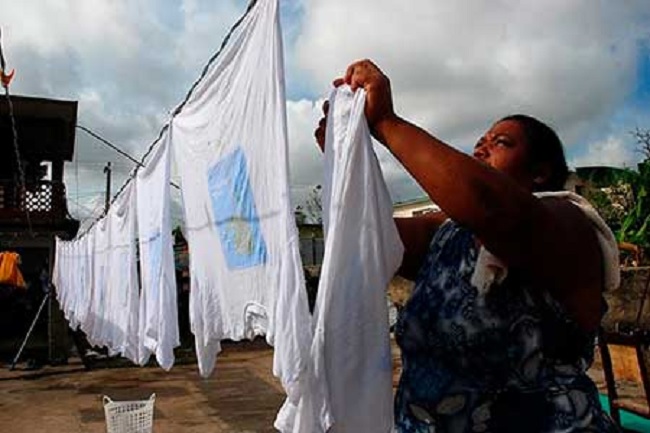
Care, but also take care
When considering all these difficult situations and stages, it becomes evident that caregivers require help not only in terms of care, to share responsibilities in caring for others, but also support, because they deserve it, in thinking about how to deal with care, learn to provide them and have rest times.
Because caring for others should not be at the cost of neglecting oneself. «We have to find a way to link care for and take care. Whenever there’s more sacrifice than effort, it has to work as an alert to think about alternatives for care”, warns the speaker, who also insists on the importance of caregivers speaking normal about their feelings, and being angry doesn't make them bad people, nor should it make them feel guilty, she says.
Undoubtedly, and coinciding with Losada Cucco, caregivers like Zunilda, with the support of workshops, community alternatives, group intervention programs and other variants, need tools for all of the above and also to learn to set limits, to delegate, "to rethink care and self-care, because they are not selfish because they take care of themselves."
Translated by Amilkal Labañino / CubaSí Translation Staff














Add new comment